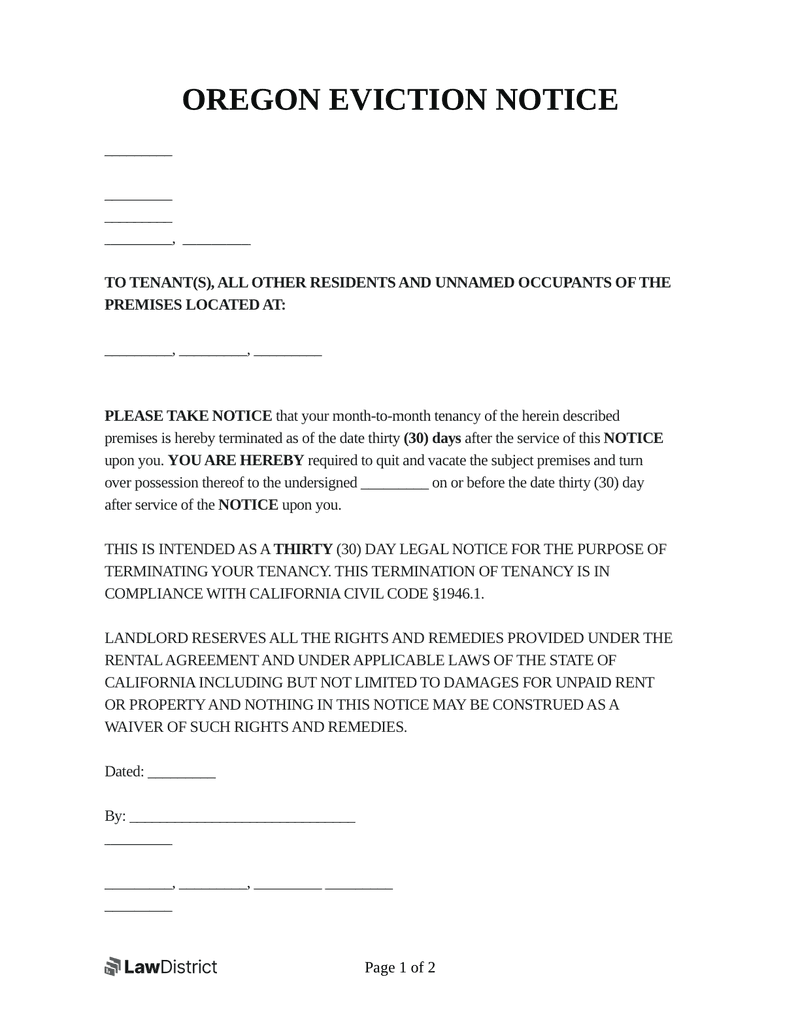A legal eviction in Oregon can only be made for a number of legally acceptable reasons. This means that landlords must provide a valid basis along with the correct amount of days’ notice in order to comply with the legal eviction process within the state.
Not using the correct legal document, in this case, can lead to delays or even legal dismissal of the eviction, so it is important to choose the right type.
24-Hour Notice
A 24-Hour notice is used when a major violation of the lease has occurred. This might be the case if the tenant or their pet has caused serious damage to the premises or has committed violent acts against either the landlord or other tenants.
This is an incurable notice and cannot be remedied. Once served, the tenant has 24 hours to leave the premises.
72-Hour Notice
If a tenant with a week-to-week contract doesn’t comply with the rental payment schedule and hasn’t paid eight days after the rent was last owed, the landlord may present them with a 72-Hour notice. This obliges them to pay rent or quit within 3 days.
If the tenant complies and pays the rent then the notice will be nullified. If they refuse to pay or vacate the property the landlord will be able to pursue the matter further through the courts.
144-Hour Notice
When a month-to-month tenant fails to pay rent, the landlord may issue a 144-Hour notice on the fifth day after the date the payment was due. This gives the delinquent resident 6 days to pay the money owed or leave the premises.
Like the 72-Hour notice, if the owed rent is paid within the notice period the eviction order will be null and void.
30-Day Notice
A 30-Day notice is most commonly used when a tenant commits lease violations. This gives the tenant 14 days to remedy the situation or (if they fail to fix the issue) 30 days to leave the property.
30-Day notices can also be used to formally terminate a fixed lease. However, these can only be used for contracts of under one year in length. Leases of longer than 12 months require a 60-Day notice instead.
60-Day Notice
When landlords wish to end periodic tenancies where the tenant has been residing in the property for over one year, a 60-Day Notice is required. This lets the landlord give the tenant legally sufficient advance notice of their decision to evict.
